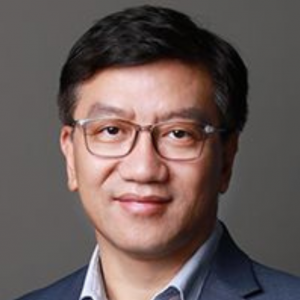Could you please tell us why you founded the company in 2008 and how you expanded your footprint to the US and China?
In 2008, during the economic crisis, I was completing my postdoctoral work in immunology at NYU Medical Center and struggled to find a job. I admired Regeneron’s approach of using gene-edited mouse models to develop novel drugs, and this led me to establish Biocytogen adopting a similar strategy. My move to Massachusetts, where I had previously obtained my PhD from UMass Medical School, was influenced by my wife's employment at the medical school there. This familiarity with the area prompted me to start my company, Biocytogen, near UMass Worcester. My expertise in gene-editing motivated the company's initial focus on creating genetically engineered models for customers. Despite challenges in the early stages, including the lengthy process of generating these models before the advent of CRISPR technology, our first product, the interleukin 17 GFP reporter mice, proved financially successful.
In 2009, we expanded to China, recognizing the lower labor costs and the untapped market potential there. Initially, with a small team, we trained extensively to provide gene-editing services, eventually identifying a significant demand in academic labs and the biotech industry due to the absence of other commercial providers in this field. This unique positioning enabled rapid growth in China.
How has the company’s business model evolved?
At first, our business focused on providing custom gene-editing services without retaining intellectual property. However, this approach had limitations, as it did not allow for product accumulation. In 2014, we pivoted to developing humanized mouse models, such as the PD-1 humanized mice. These mouse models, in which murine (mouse) genes are replaced with the corresponding human genes in situ (within the same genetic location), facilitate in vivo testing of specific antibodies and treatments. This innovation, a first of its kind before 2014, enabled us to offer ready-to-use models to clients, streamlining their research processes and saving them significant time.

Our BioMice models represent a collection of various target humanized models like PD-1 and HER2 humanized mice, as well as other gene-edited mice such as immunodeficient mice. This strategic shift allowed us to deliver these models directly to companies for immediate use, marking a significant advancement in our business approach.
Could you share insights into your “collaborations with over 70% of the top 50 pharmaceutical and biotechnological companies worldwide”?
Our breakthrough came in 2015 with the introduction of our unique models to the global market. The R&D teams at large companies were immediately interested in our models due to their uniqueness. However, initial scepticism about procuring animals from China, particularly concerning pathogen-free standards, posed a challenge. To address this, we aligned our animal facility standards with international requirements, testing for 54 pathogens to match global standards.
To build trust, we initially transferred our mice to a third-party facility in the U.S. for rigorous testing. Gradually, as we proved that our mice consistently met the highest standards of cleanliness, they began to be directly accepted into pharmaceutical companies' facilities. This rigorous validation process opened doors for us globally, earning the trust and business of major pharmaceutical companies and establishing Biocytogen as a trusted partner in the industry.
Is it accurate to refer to Biocytogen as a CRO, and how do you differentiate yourself in the field?
Our two main businesses are animals and therapeutic antibodies. In the animal sector, we offer a unique product, BioMice models, which are ready-to-use, gene-edited animal models available for immediate order. This is distinct from a pure CRO service business model, where results are delivered using animal models provided by the client. Rather, our team utilizes our proprietary animal models to conduct preclinical testing for clients, like testing PD-1 antibodies. We also provide custom gene-editing services to create specific animal models on demand. This combination of product supply and service contributes to our significant growth and sets us apart in the industry.
As for our therapeutic antibody business, it is more of a therapeutic asset out-license or co-development model. Using our proprietary RenMice platforms, we have identified a vast library of about half a million antibody sequences against over 1,000 different targets. This allows us to offer off-the-shelf antibodies, saving significant drug-development time for our partners. Our multi-species recognizing antibodies are another innovation, simplifying experimental studies in regular mice. If a specific antibody is not in our library, our discovery team can develop it.
What are the two biggest challenges Biocytogen faces, and what are its objectives for the next few years?
Our immediate goal is to globally promote our vast antibody library, akin to our success with animal models. We aim to out-license these antibodies as essential building blocks for innovative therapeutics for companies worldwide. Additionally, we recognize the growing significance of longevity research in drug development. In anticipation of this trend, we are actively conducting pilot studies to identify proteins and genes that could potentially extend life. By doing so, we aim to consistently generate new animal models and antibody sequences to meet the evolving needs of the biotech and biopharmaceutical industry. Our proactive approach is geared towards facilitating novel drug development and offering innovative solutions to address unmet medical needs.
- Share on:



